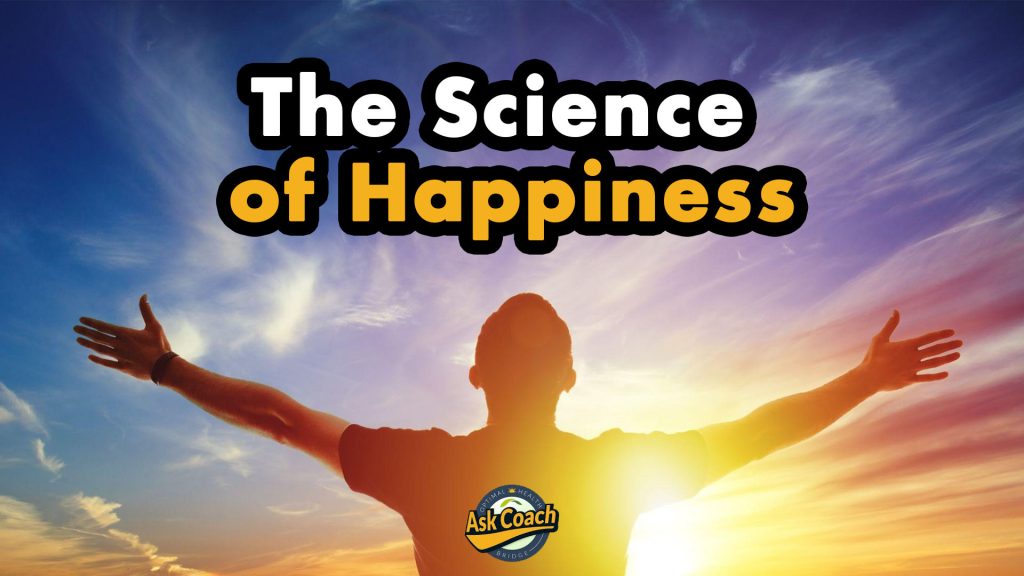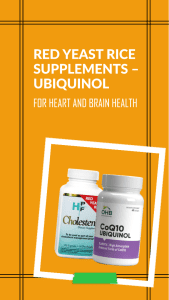
Share
 Happiness is a universal human goal. Somewhere in my past, I’ve heard the phrase that happiness is a mode of travel, not a destination. People spend their entire lives pursuing happiness, but what is it, and how can it be achieved? It’s even promised in our constitution that we have the freedom to pursue our own happiness. Historically, psychology has focused on treating mental illness and dysfunction. In recent years, a new field of study called positive psychology has emerged to explore the science of happiness.
Happiness is a universal human goal. Somewhere in my past, I’ve heard the phrase that happiness is a mode of travel, not a destination. People spend their entire lives pursuing happiness, but what is it, and how can it be achieved? It’s even promised in our constitution that we have the freedom to pursue our own happiness. Historically, psychology has focused on treating mental illness and dysfunction. In recent years, a new field of study called positive psychology has emerged to explore the science of happiness.
As we age, we hope to become wiser as time marches on. Our experiences should teach us lessons we can apply today and move on into the future. Positive psychology is a relatively new branch that has gained popularity over the past few decades. It is a scientific study of what makes people happy, what brings meaning and purpose to their lives, and how they can increase their overall well-being. Positive psychology focuses on positive emotions, character strengths, and personal growth.
The roots of positive psychology go back to ancient Greece, where philosophers such as Aristotle and Epicurus debated the nature of happiness and the good life. However, the modern field of positive psychology began in the late 1990s when Martin Seligman, the former president of the American Psychological Association, became interested in positive emotions and their effects on human behavior.
Seligman believed that psychology had become too focused on mental illness and dysfunction and that it was time to explore what makes people happy and fulfilled. He proposed a new approach to psychology that focused on cultivating positive emotions like joy, gratitude, and love and developing positive character traits such as resilience, optimism, and empathy.
Positive psychology is based on the concept that happiness is not just the absence of negative emotions but the presence of positive ones. Positive emotions are fleeting moments of pleasure and lasting joy and contentment that can be cultivated and sustained over time.
Positive psychology has identified several factors that contribute to happiness and well-being, including:
- Gratitude: People who are grateful for what they have are likelier to be happy and satisfied with their lives.
- Positive relationships: Social connections are essential for happiness, and people who have strong relationships with family and friends are more likely to be happy and fulfilled.
- Meaning and purpose: People with a sense of purpose and meaning in their lives are likelier to be happy and satisfied.
- Flow: Flow is a state of optimal experience in which people are completely absorbed in an activity and lose track of time. People who experience flow are more likely to be happy and fulfilled.
- Resilience: Resilience is the ability to bounce back from adversity and overcome challenges. Resilient people are more likely to be happy and successful in life.
Positive psychology has generated significant research, and its findings have practical applications in a wide range of areas, including education, business, and healthcare. Positive psychology interventions, such as gratitude journaling, mindfulness meditation, and positive self-talk, have increased happiness and well-being in people of all ages.
Here’s an affirmation I adopted a few years ago, and I find myself telling someone about almost daily. Now I am telling you. “I am the generator of my own joy.” It’s a keystone reminder to take responsibility for my own happiness. I cannot look to the environment, circumstances, or other people to give me joy. It’s an inside job. It comes from within. Yes, we can initiate happiness just by setting expectations.
Positive psychology has revolutionized the way we think about happiness and well-being. It has shifted the focus from mental illness and dysfunction to cultivating positive emotions, character strengths, and personal growth. As a result, new research and interventions have been developed that focus on the enhancement of people’s lives. By embracing the principles of positive psychology, individuals can lead happier, more fulfilling lives, and society can move toward a more positive, resilient, and thriving future.
In addition to its impact on well-being, joy and positive emotions have been found to significantly affect human health. Studies have shown that people who experience positive emotions regularly have lower levels of stress hormones, reduced inflammation, and a more robust immune system.
Positive emotions are also linked to a lower risk of cardiovascular disease, stroke, and other chronic illnesses. One study found that people who experienced a high degree of positive emotions had a 50% lower risk of developing cardiovascular disease than those who experienced a low degree of positive emotions.
Positive emotions have been found to promote longevity. One study of nuns found that those who expressed positive feelings in their writing had a significantly higher chance of living to an older age than those who communicated through negative emotions.
Overall, the science of happiness and positive psychology demonstrates the importance of cultivating joy and positive emotions in our lives. Not only do they make us feel good, but they also have significant benefits for our health and well-being.
Your body and mine are comprised of somewhere in the neighborhood of 37 trillion to 70 trillion cells. Within each cell, there are complex organization systems that allow life and our consciousness to exist. Not the least of which is the mitochondria, which are not only the energy source of life but also contain our DNA.
This complex code allows us to regenerate cells on an as-needed basis, but to also pass on information to the next generation. The records are now decoded and can be read by advanced computer systems. Now we also know that memory is contained in every cell. Just as we remember the information we have learned, our bodies retain specific information. For example, The long scar on my left knee from an accident when I was 18 is still evident at age 69, fifty-one years later.
This knowledge is vital because, if we are willing, we can influence our bodies to perform per our intentions and outcomes. A few weeks ago, I related that I suffered an injury in my sacroiliac joint. Through physical therapy and exercise, I have learned what I need to do to strengthen this weak area of my body.
Now, when I bend down and retrieve items from the floor or carry in the groceries without pain, I consciously communicate with my lower back, hips, and especially my SI joint how grateful I am for the freedom of pain-free movement. Within this arena of psychology, we have much we can learn and implement to lead healthier lives.
“Whether you believe you can do a thing or not, you are right.” Attributed to Henry Ford in 1947. Our internal compass, our perspective, has much to do with our outcomes.
Is there a biological advantage to having a positive mindset? Can you lower your blood pressure through meditation? Or does being positive about life just make you a Pollyanna? What do you think?
In health,

Garey Simmons, CHC
Here are some references to the research studies mentioned in the article:
- Seligman, M. E. P., & Csikszentmihalyi, M. (2000). Positive psychology: An introduction. American Psychologist, 55(1), 5-14. doi:10.1037/0003-066X.55.1.5
- Lyubomirsky, S. (2008). The “how of happiness: A scientific approach to getting the life you want. New York: Penguin Press.
- Fredrickson, B. L. (2001). The role of positive emotions in positive psychology: The broaden-and-build theory of positive emotions. American Psychologist, 56(3), 218-226. doi:10.1037/0003-066X.56.3.218
- Emmons, R. A., & McCullough, M. E. (2003). Counting blessings versus burdens: An experimental investigation of gratitude and subjective well-being in daily life. Journal of Personality and Social Psychology, 84(2), 377-389. doi:10.1037/0022-3514.84.2.377
- Diener, E., & Seligman, M. E. P. (2004). Beyond money: Toward an economy of well-being. Psychological Science in the Public Interest, 5(1), 1-31. doi:10.1111/j.0963-7214.2004.00501001.x
- Csikszentmihalyi, M. (1990). Flow: The psychology of optimal experience. New York: Harper & Row.
- Masten, A. S. (2001). Ordinary magic: Resilience processes in development. American Psychologist, 56(3), 227-238. doi:10.1037/0003-066X.56.3.227
- Boehm, J. K., & Kubzansky, L. D. (2012). The heart’s content: The association between positive psychological well-being and cardiovascular health. Psychological Bulletin, 138(4), 655-691. doi:10.1037/a0027448
- Danner, D. D., Snowdon, D. A., & Friesen, W. V. (2001). Positive emotions in early life and longevity: Findings from the nun study. Journal of Personality and Social Psychology, 80(5), 804-813. doi:10.1037/0022-3514.80.5.804










